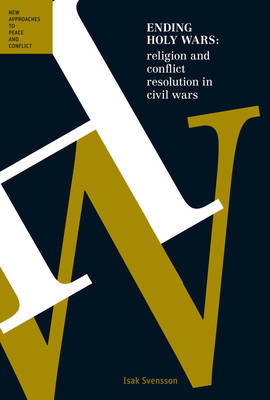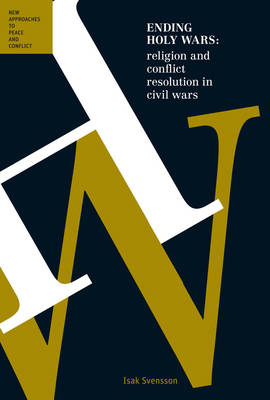
- Afhalen na 1 uur in een winkel met voorraad
- Gratis thuislevering in België vanaf € 30
- Ruim aanbod met 7 miljoen producten
- Afhalen na 1 uur in een winkel met voorraad
- Gratis thuislevering in België vanaf € 30
- Ruim aanbod met 7 miljoen producten
Zoeken
Omschrijving
An exploration of how religious dimensions affect the possibilities for conflict resolution in civil war, this account systematically attempts to map out the religious dimensions of internal armed conflicts and to explain the conditions under which religious dimensions impede peaceful settlement. Drawing upon empirical work on global data, and based on the Uppsala Conflict Data Program, this book shows how religious identities and incompatibilities influence the likelihood of agreements and the mechanisms through which parties and third-party mediators have been able to overcome religious obstacles to negotiated settlements. Findings such as these pave the way for a discussion on how conflict theory can better incorporate religious dimensions as well as how policy can be designed to manage religious dimensions in armed conflicts.
Specificaties
Betrokkenen
- Auteur(s):
- Uitgeverij:
Inhoud
- Aantal bladzijden:
- 360
- Taal:
- Engels
- Reeks:
Eigenschappen
- Productcode (EAN):
- 9780702249563
- Verschijningsdatum:
- 1/04/2013
- Uitvoering:
- Paperback
- Formaat:
- Trade paperback (VS)
- Afmetingen:
- 152 mm x 226 mm
- Gewicht:
- 340 g

Alleen bij Standaard Boekhandel
+ 99 punten op je klantenkaart van Standaard Boekhandel
Beoordelingen
We publiceren alleen reviews die voldoen aan de voorwaarden voor reviews. Bekijk onze voorwaarden voor reviews.











